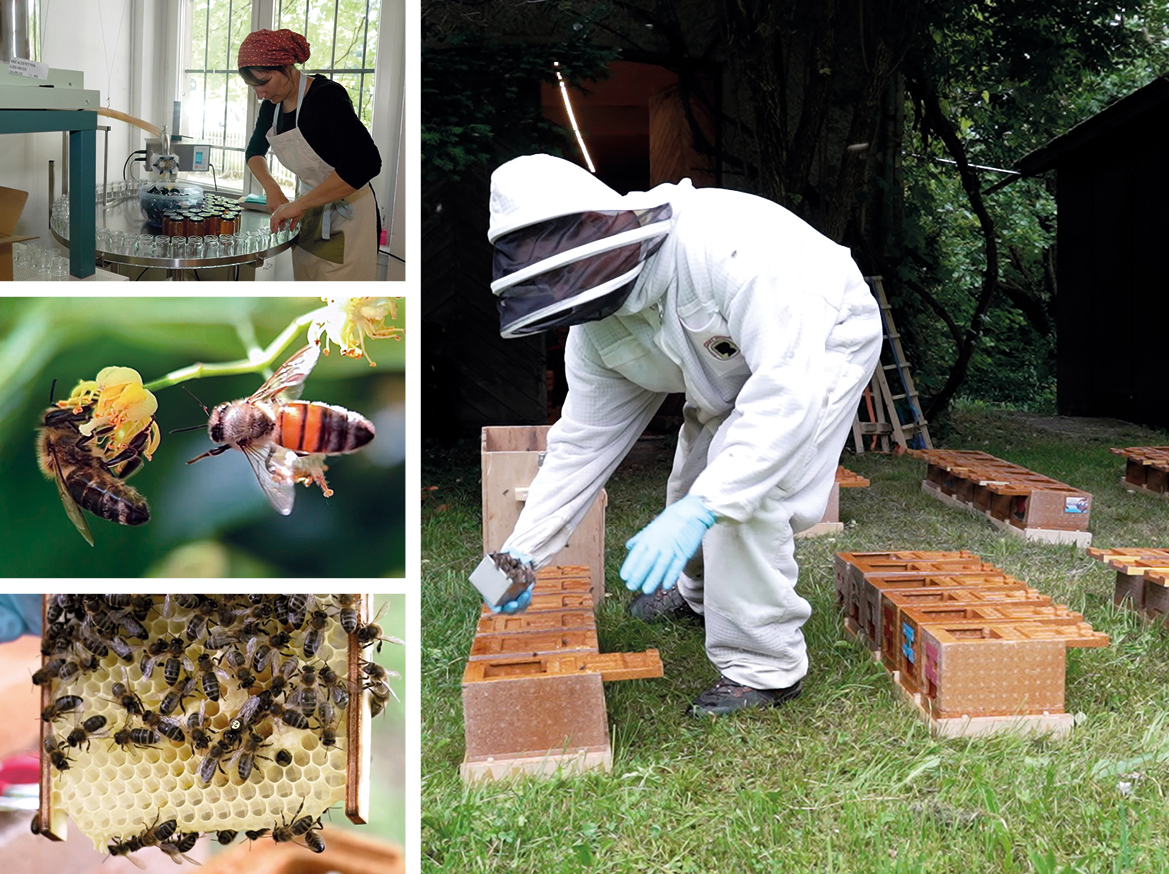THE BEE DILEMMA – PROFIT OR SPECIES PROTECTION

A few years ago, everyone was talking about declining bee populations, but today beekeeping is booming. In Swiss cities, there are now too many farmed bees – a problem for biodiversity.
The use of pesticides and gradual disappearance of flower-filled meadows in rural regions have made Swiss cities important refuges for rare species of wild bees. But in recent years, beekeepers, too, have discovered the advantages of cities. Professional beekeeper Anna Hochreutener and her husband, for example, keep almost one hundred bee colonies in Zurich and successfully market their urban honey. Beekeeping has a positive reputation and is often believed to have a beneficial effect on biodiversity. According to one study, however, beekeeping in Swiss cities is booming so exponentially that honey bees are taking away food from rare wild bees – like the European dark bee, a wild subspecies of the honey bee. Conservationists are calling for the regulation of urban beekeeping. They see honey bees as agricultural animals that are bred for their yields and kept in beehive densities that are far too high. Breeding for yield has also made honey bees susceptible to disease and parasites. Beekeepers in Zurich who are campaigning for the preservation of the European dark bee believe the solution is near-natural beekeeping, which would allow native bees to return to the wild in Zurich’s forests.